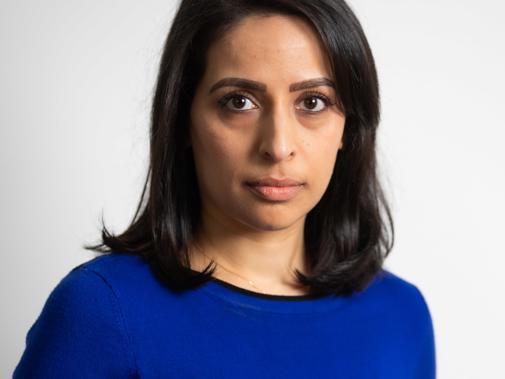One of the most important parts of my job as representative body chair is to organise, prepare for, and lead the BMA annual representative meeting.
It is the most significant policy-forming event of the calendar for our trade union and professional association and, each year, marks a huge opportunity for us to begin making a difference on the issues which affect our working lives and, ultimately, the care we can give to patients.
When I originally stood for election – for the deputy RB chair role – I was up against six more senior men. I was a woman, a junior doctor and from an ethnic minority. I was surprised I won, but a representative body of around 500 medical students and doctors from across the UK, from different specialties and healthcare settings, voted for me.
I wanted to make sure in the future people from minoritised backgrounds wouldn’t feel like their election was a shock – I wanted to use my voice, and my position, to ensure the BMA would become as diverse, accessible, inclusive, and representative as possible.
For far too long, too many organisations, particularly around medicine and healthcare, have been totally unrepresentative in our senior structures and we cannot do our best for a diverse workforce while this remains the case.
There was a long way to go but we have made huge progress. We now have another junior doctor at the highest levels of leadership in the BMA – Emma Runswick, our deputy chair of council and junior doctor in psychiatry – and we have more women and more people from different ethnic minority backgrounds involved in leadership roles than ever before.
The truth is that there is always much more work to be done. I know, for example, that we don’t represent our black colleagues, our disabled colleagues, or our LGBTQ+ colleagues as well as we should; we are not representative for them. We must make routes into leadership roles in our organisation much more accessible. At this year’s ARM I will take our work further.
All chairs aim to balance the debate and hear from a varied group of voices to ensure accurate representation. But in the past, in order to do this, we have had to profile people who want to be speak on certain topics, based on their name.
I would have to assume gender, ethnicity, even disability to make sure we have a good diversity of speakers. But the truth is that I don’t know enough about the people I am seeing out in front of me at ARM – and it is entirely unacceptable to be profiling people based on how their voice sounds or how they look.
I need more information and more support to ensure that our discussions – discussions which form the policy our association will act on – are representative. At this year’s ARM I will champion positive action to achieve greater fairness, representation, and diversity. We will be seeking to collect equality and diversity data from participants at the ARM so when I am chairing the debate I can do so as effectively and as fairly as possible.
I want to, with confidence, balance the debate with a diversity of voices that is representative of our membership and demonstrate that, with effort, you can change representation. Again, for too long, we’ve had stages which are simply just not diverse – and this is to the detriment of us all. I know the difference this kind of work can make.
I also chair your BMA equality, diversity, and inclusion advisory group and I am the chief officer equality lead. I also sit on the NHS equality and diversity council, the GMC BME forum and the GMC strategic EDI advisory forum, among others. I’ve also joined the medical workforce race equality standard team. I regularly meet with other organisations to discuss and lobby on how we can better support our diverse membership and colleagues.
This is important work – and I am absolutely committed to it. I have seen first-hand that diverse leaderships represent better. Please get in touch if you think we are missing any avenues in our pursuit of the best possible representation for our members – and our profession – that we can achieve. If you think we can do anything more, you can contact me directly via Twitter or email me at [email protected]
Dr Latifa Patel is chair of the BMA representative body

